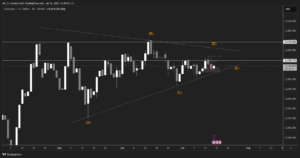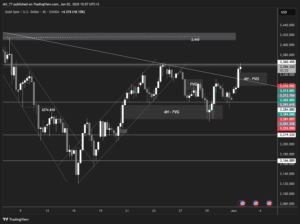Oil prices rose on Friday, as geopolitical tensions and disruptions to US oil production due to cold weather outweighed concerns about slowing demand growth in China and expectations of rising supply.
Both benchmark crudes rose by about 2%, with the International Energy Agency (IEA) joining the Organization of the Petroleum Exporting Countries (OPEC) in forecasting strong global oil demand growth.
The IEA raised its forecast for global oil demand growth in 2024 again on Thursday, although its numbers are still lower than OPEC’s forecasts. It said the market appears well-supplied thanks to strong growth in non-OPEC countries.
The agency expects global oil supply to rise by 1.5 million barrels per day to a new level of 103.5 million barrels per day in 2024, supported by record production from the United States, Brazil, Guyana, and Canada.
Pakistan launched strikes against Iranian separatists inside Iran on Thursday, two days after Tehran said it had targeted bases of another group inside Pakistani territory.
The Houthis continued attacks on US ships on Thursday, nearly a week after the United States and Britain launched strikes against Houthi sites in Yemen.
All of these factors contributed to the rise in the price of US West Texas Intermediate crude to $74.21.
Gold rebounds slightly after a sharp decline
Gold prices rebounded after a sharp decline this week, as strong US data raised growing doubts about early interest rate cuts by the Federal Reserve.
The yellow metal wiped out most of the gains it made in December and came close to breaking below the $2,000 per ounce level, but prices suddenly found some support around the $2,000 per ounce level and staged a strong recovery.
This comes with the dollar weakening and statements by Fed member Bostic yesterday that a rate cut is necessary before July. The increasing military activity in the Middle East and geopolitical developments are all factors that have boosted demand for gold as a safe haven, and have made it struggle to break the $2,000 level.
Spot gold rose 1.2% to $2,030 per ounce.
Copper prices at one-month lows as Chinese sentiment worsens
Among industrial metals, copper prices stabilized on Thursday after recording sharp losses this week, amid deteriorating sentiment towards China and pressure from the dollar.
March copper futures fell 0.1% to $3.7395 per pound and traded near their weakest levels since early December.
The red metal has suffered heavy losses after China, the largest importer, reported weaker-than-expected fourth-quarter GDP figures, raising growing concerns that easing economic conditions in the country will weaken its appetite for copper.
Expectations for copper have also dimmed due to weak expectations for electric vehicle sales this year. Increased demand for electric vehicles was initially linked to be the main driver of copper prices in the coming years.
Markets now:
US crude oil up 0.69% to $74.46 per barrel
Nasdaq up 0.57% to 17,079 points
Dow Jones up 0.54% to 37,468 points
Gold up 0.30% to $2,029 per ounce
For further insights, check OneRoyal’s Facebook, Instagram, and Twitter pages and expand your understanding of financial markets with global perspectives. Staying informed is crucial in the ever-evolving world of finance.
Disclaimer: This article is not investment advice or an investment recommendation and should not be considered as such. The information above is not an invitation to trade and it does not guarantee or predict future performance. The investor is solely responsible for the risk of their decisions. The analysis and commentary presented do not include any consideration of your personal investment objectives, financial circumstances, or needs.





